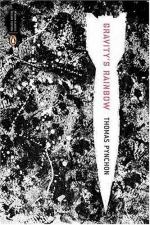|
This section contains 160 words (approx. 1 page at 400 words per page) |

|
Hawthorne, Mark D., Pynchon's Early Labyrinths, in Critique, Vol. 25, No. 2, Spring 1998, pp. 78-93.
Hawthorne's essay discusses labyrinths as they are constructed and presented in Pynchon's fiction, focusing particularly on Gravity's Rainbow.
Hume, Katherine, Pynchon's Mythography: An Approach to Gravity's Rainbow, Southern Illinois University Press, 1987.
Hume tracks Pynchon's use of the myth of Orpheus in Gravity's Rainbow. A prodigious musician, Orpheus is granted the right to bring his wife back from the dead but breaks the agreement by looking back for her, thus losing her forever.
Newman, Robert D., Understanding Thomas Pynchon, University of South Carolina Press, 1986.
This broad discussion of Pynchon and his works is basic, readable, and accessible.
Weisenburger, Steven, A Gravity's Rainbow Companion: Sources and Contexts for Pynchon's Novel, University of Georgia Press, 1988.
Weisenburger's guide to Pynchon's novel is an indispensable resource for first-time and repeat readers. It includes plot summary information and...
|
This section contains 160 words (approx. 1 page at 400 words per page) |

|




